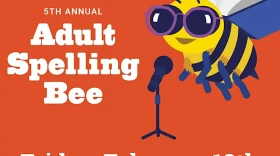A UW researcher is growing increasingly concerned about the plight of the gray wolf on Wisconsin’s landscape. For 15 years, environmental studies associate professor Adrian Treves has studied the ecology of the carnivore’s interactions with people and has surveyed Wisconsin residents on wolf policy and management.
Treves predicts Wisconsin's wolf hunts, at their current levels, are not sustainable. More than 250 gray wolves are expected to be slain in the state's upcoming second annual wolf hunt season, which starts on October 15.
Treves says that number represents "a little more than 30% of the late winter wolf count," which means Wisconsin has the highest or second highest wolf quota on the record in North America. Treves calls it an undeniably "aggressive wolf hunt."
Treves says there is a high likelihood that by April 2015, the wolf hunt will have to be closed due to such a steep decline in the wolf population. That decline may result in the gray wolf being re-listed in Wisconsin as a threatened and endangered species by 2016.
He also warns that there's real risk that the wolf population could be driven so low that it cannot recover, and the federal government would “have to step in, again, under emergency re-listing rules of The Endangered Species Act."
It's an interesting finding, given the U.S. Fish and Wildlife Service announced plans earlier this summer to lift the creature from the threatened and endangered species list throughout the country. That’s already happened in Wisconsin, even as pro-wolf groups are trying to overturn the decision to delist the gray wolf in the Great Lakes region.
Treves – along with colleagues at Michigan Tech and Ohio State University – co-authored a scientific criticism of U.S. Fish and Wildlife Service plan. The agency has stated that tolerance for wolves is higher within current wolf range. Treves says that statement flies in the face of data gleaned from more than 100 scientific studies. The researcher says, in general, the U.S. public supports gray wolf recovery in appropriate environments. Further, Treves says, public tolerance of wolves is lower within currently existing wolf range.
Back at the state level, Treves this week is releasing public opinion results on the state’s first wolf hunt, held last year.
Treves says not only are the state's wolf hunt practices not sustainable, they also contradict public opinion. His team's report found a five to seven percent increase in people opposing particular ways of hunting wolves. According to Treves, a majority of the Wisconsin public, outside the wolf range, do not support the current wolf hunt.
But Treves says public opinion is not carrying the weight it should. Instead, he says the proposal to eliminate federal protection for wolves seems “politically motivated" and "excessive," while contradicting scientific evidence.
Treves and Masters candidate Jamie Hogberg shared the results of their public opinion survey on Wisconsin wolf policy this week with a DNR advisory committee in Wausau.
The public can weigh in on the U.S. Fish and Wildlife Service proposal to remove the gray wolf from the national threatened and endangered species list – deadline Sept 11, 2013.






